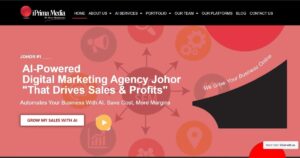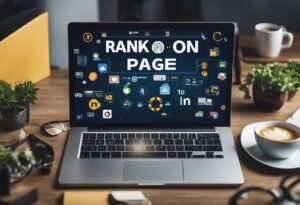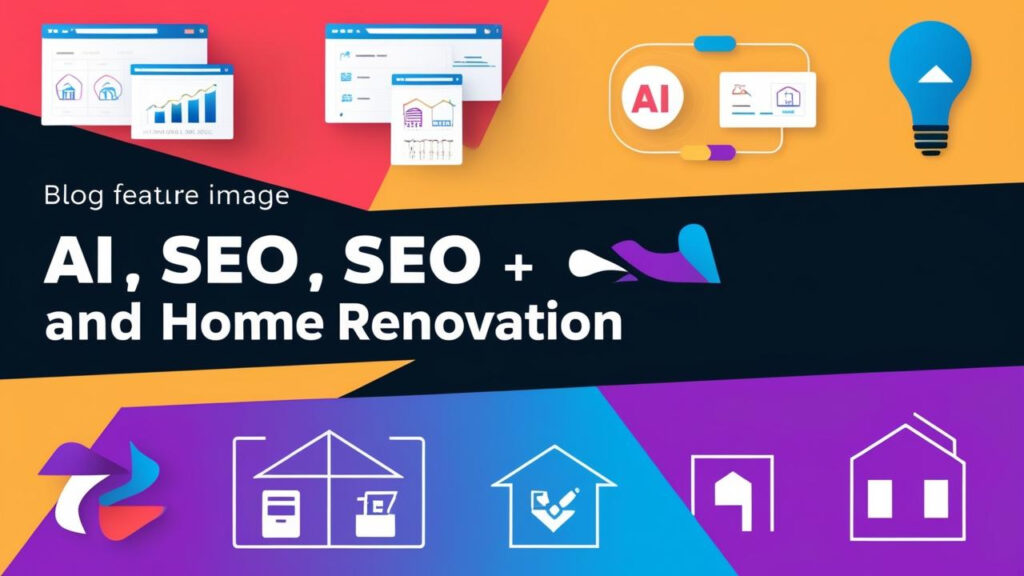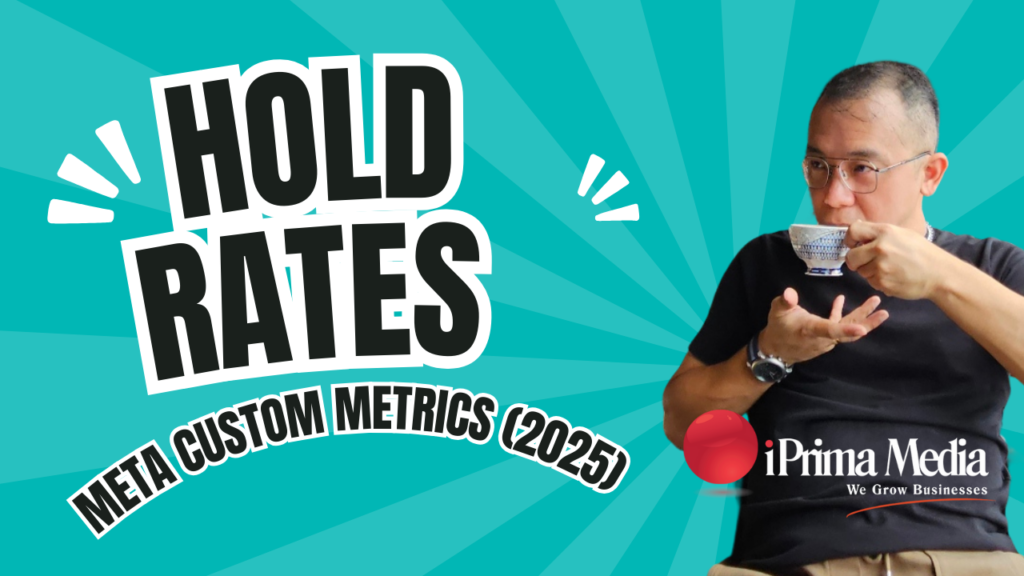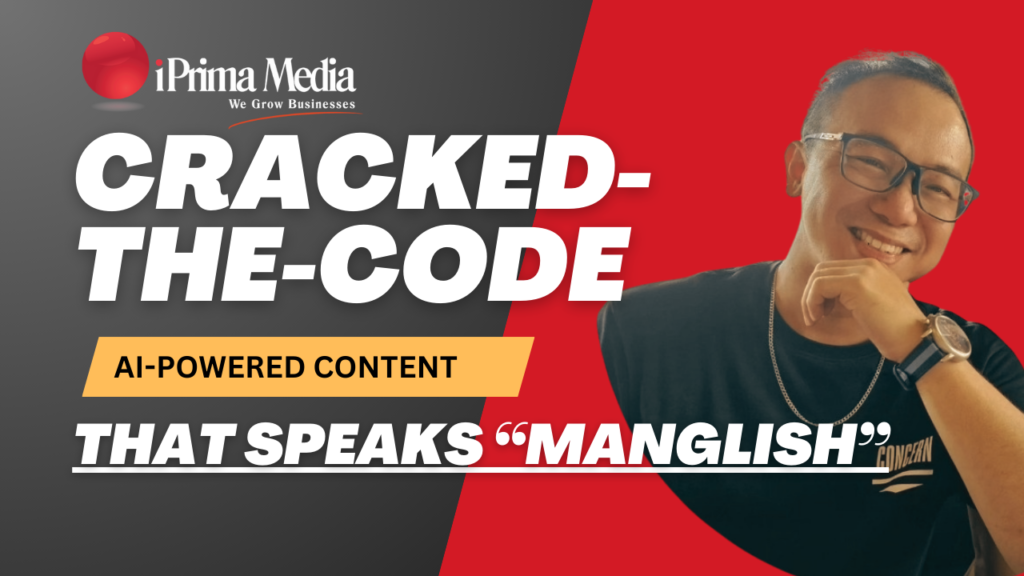In the dynamic world of digital marketing, mastering the art of SEO, or search engine optimization, is crucial for any business aiming to increase its online presence. As we navigate the digital landscape, it's apparent that the competition for visibility on search engines like Google is intense. An SEO agency plays a pivotal role in crafting strategies that not only improve search rankings but also drive quality traffic to a website, turning visitors into valuable leads.

The work of an SEO agency involves an extensive range of activities; from in-depth keyword research that identifies the terms your audience is searching for, to meticulous on-page and off-page optimization strategies that build your site's authority. Technical SEO aspects such as site speed are also addressed to ensure that your website's infrastructure meets search engines' standards. Ultimately, the goal is to enhance the user experience and increase the likelihood of conversions, which is where the proficiency of a seasoned SEO agency becomes invaluable.
Key Takeaways
- An SEO agency can significantly boost your website's visibility and lead generation.
- Comprehensive strategies cover keyword research, on-page/off-page optimization, and technical site improvements.
- Partnering with a proficient SEO agency optimizes the user experience and conversion rates.
Understanding SEO Services
In this section, we delve into the essence of what SEO services entail and how they become instrumental in boosting a website's search engine ranking. We'll explore what SEO is and the core elements that shape an effective SEO strategy.
What Is SEO?
SEO, or Search Engine Optimization, is the process we use to increase a website's visibility in search engine results. It's a comprehensive approach to ensure that when people use search engines like Google or Bing, they have a higher chance of finding our client's website. This entails optimizing both the technical configuration and the content of a website so that search engines can index it correctly and efficiently.
Key Elements of SEO
On-page SEO: This involves optimizing the content on the website itself, like the text on each page, images, and the HTML code. Strategies include using relevant keywords in our content and meta tags to help search engines understand what each page is about.
Off-page SEO: It encompasses actions taken outside the website to improve its ranking. This can involve link building or social media marketing, which aim to enhance the site's reputation and authority.
Technical SEO: This refers to the non-content elements of a website. It includes improving site speed, mobile-friendliness, indexing, and crawlability, which help search engines crawl and index our website more effectively.
Each of these elements is crucial for ensuring that our site ranks well in search engine results and attracts more organic traffic. Our goal in providing SEO services is to enhance these elements to drive higher visibility for your site, ensuring that it's not just seen by more people, but by the right people—potential customers specifically searching for what you offer.
The Role of SEO Agencies
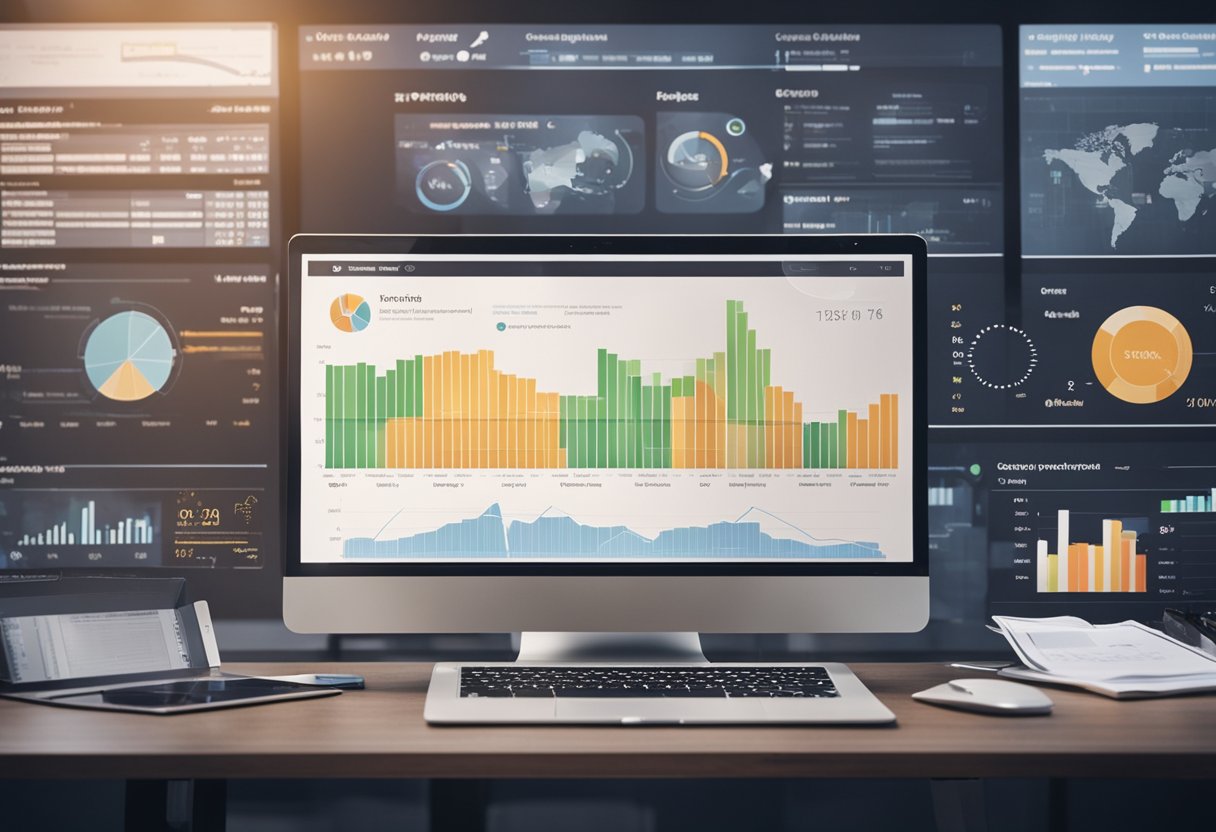
SEO agencies are pivotal to enhancing the online presence of a brand. They bring a blend of expertise and customized tactics aimed at boosting search engine rankings.
Services Offered
SEO Audit:
We begin by conducting a comprehensive SEO audit of your website. This helps us to identify areas that require improvement and to benchmark current search engine rankings.
- Keyword Research: Identifying and incorporating relevant keywords is vital to improve your site's visibility.
- Content Optimization: We produce and refine content to align it with search engine algorithms and user search intent.
- Link Building: Establishing high-quality inbound links enhances domain authority.
- Technical SEO: We implement changes that improve website structure, speed, and mobile responsiveness.
Custom SEO Strategies
Tailored approaches:
Our strategies are never one-size-fits-all. We develop custom SEO strategies based on in-depth analysis of your company's unique position in the marketplace.
- Competitor Analysis: Assessing competitors allows us to spot opportunities for your brand to stand out.
- Brand Awareness: We leverage SEO efforts to increase visibility, cementing your brand's presence in the digital space.
- Performance Tracking: Monitoring and adjusting to data-driven insights is crucial to the continual refinement of our strategy.
Importance of Keyword Research
We understand that at the heart of a successful SEO campaign lies thorough keyword research. It is the strategic backbone ensuring we connect our content with the search queries of our intended audience, ultimately leading to better ROI, an increase in qualified leads, and higher conversion rates.
Keyword Analysis Process
To effectively target potential customers, we follow a meticulous keyword analysis process. This involves:
- Identifying Core Terms: We begin by pinpointing the primary terms that are central to our services.
- Search Volume Assessment: Knowing how often these terms are searched helps us to gauge traffic potential.
- Competition Analysis: By evaluating the competitive landscape, we can find gaps and opportunities.
- Intent Evaluation: Understanding whether searchers want information, products, or services is crucial for alignment with our content.
Using tools and analytics, we not only uncover what terms are pertinent to our market but also why they matter.
Matching Keywords with Content
When matching keywords with content, we aim for precision. Remember, it's not about just any traffic – it's about the right traffic.
- High-Value Pages: For high-competition keywords, we focus our efforts on creating content that outshines our competitors.
- Blog Posts & Articles: For long-tail keywords with specific queries, we craft informative posts that educate and entice our audience toward conversions.
- Landing Pages: With conversion-oriented keywords, our landing pages are meticulously designed to convert leads into customers.
By mapping keywords to relevant and authoritative content, we ensure each piece serves a specific purpose within our SEO framework.
On-Page and Off-Page Optimization
In our pursuit to enhance a website's visibility and ranking, we utilize two fundamental SEO tactics: on-page and off-page optimization. On-page optimization involves fine-tuning elements within our website to make it more search engine friendly, while off-page optimization revolves around strengthening the site's reputation and authority through external means.
On-Page SEO Tactics
On-page SEO refers to the strategies we apply directly on our website to improve its position in the search results. These include:
- Content Optimization: We ensure each page has high-quality, relevant content that includes targeted keywords to meet the specific needs of our audience.
- Meta Tags: Title tags and meta descriptions are crafted to include important keywords, attract clicks and provide a clear description of the page's content.
- URL Structure: URLs are designed to be concise, include keywords, and are structured for ease of navigation.
- Internal Linking: We strategically create links between pages on our website to guide users and search engines through our site's content.
Off-Page SEO Strategies
Off-page SEO encompasses the activities we perform outside our website to raise the site's standing with search engines:
- Link Building: We focus on obtaining high-quality backlinks from reputable and relevant websites as they serve as endorsements for our content's credibility.
- Content Marketing: Our off-page efforts include publishing informative articles and engaging material on various platforms to attract attention and encourage sharing, leading to natural link opportunities.
- Social Signals: While social media may not directly influence rankings, we use these platforms to enhance our brand's visibility and to drive traffic to our site.
Technical SEO and Site Speed
In the realm of SEO, technical optimization and site speed are critical components. We ensure that our website meets search engine guidelines to maximize visibility and enhance user engagement.
Website Health Checks
Technical SEO involves conducting regular health checks to identify and rectify issues that can hinder site performance. These checks include verifying index status, optimizing site architecture, and ensuring that all links are functioning properly. We focus on optimizing our robots.txt and creating XML sitemaps to aid search engines in efficient crawling and indexing of our site.
Improving User Experience
Site speed is a significant factor affecting user experience and, by extension, conversion rates. Optimizing images, leveraging browser caching, and minifying CSS, JavaScript, and HTML can improve loading times. We prioritize above-the-fold content to load swiftly, aiming to provide a better user experience and encourage higher SERP positions and conversions.
Conversion Rate Optimization
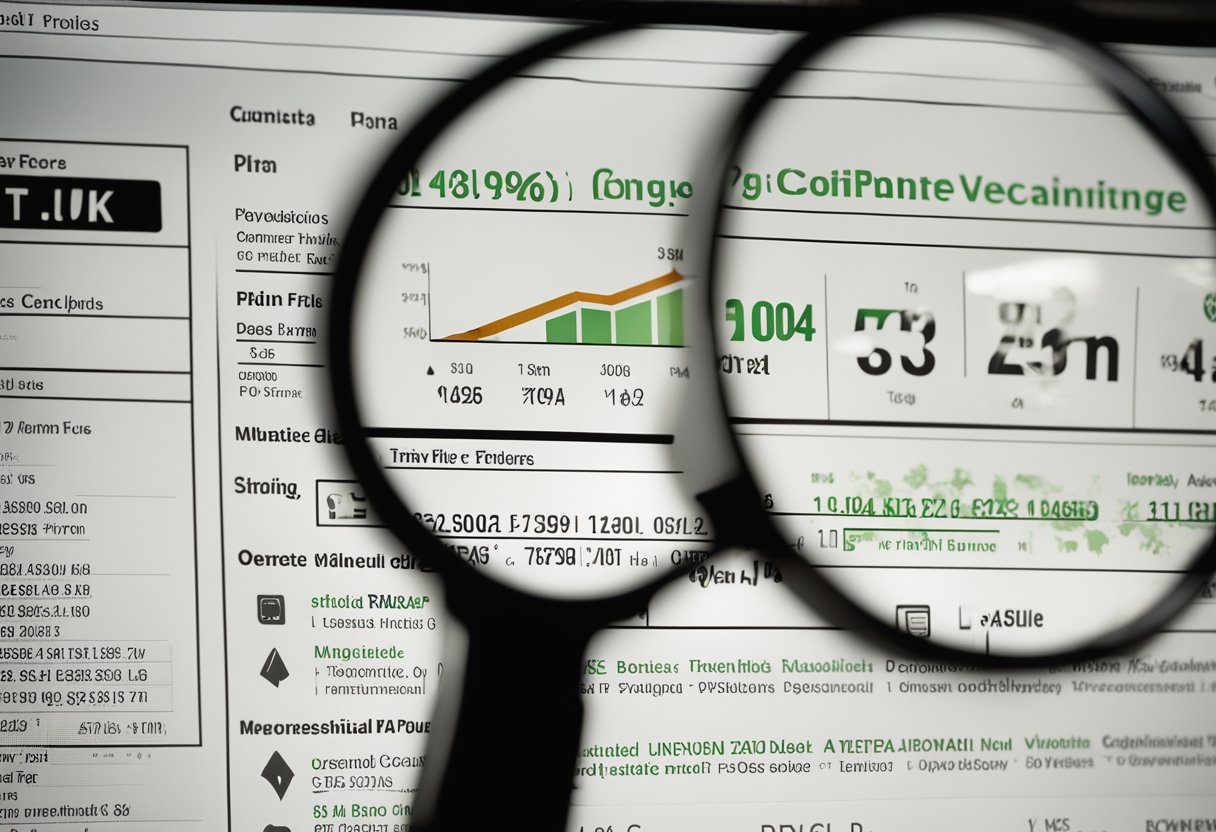
In today's digital landscape, we understand that boosting conversion rates is pivotal. By optimizing conversions, we elevate visibility and increase the likelihood of turning prospects into valued leads.
UX and Conversion Strategies
Good user experience (UX) design is crucial for conversion rate optimization. We consider every element that can impact the user's journey on a website—from how quickly a page loads to the intuitiveness of the navigation. Here's how we enhance UX for better conversions:
- Page Load Speed: Users expect pages to load promptly. Slow load times can increase bounce rates and reduce conversions.
- Site Navigation: Streamlined and intuitive navigation leads to a better user experience, which in turn can increase conversion rates.
- Call-to-Action (CTA) Buttons: We ensure CTAs are clear, noticeable, and compelling to encourage more clicks and drive conversions.
Testing and Adjustment
A/B Testing: We run A/B tests to compare different page versions, helping us determine which elements resonate best with users for maximum conversion potential.
- Layouts: Try distinct arrangements to see which yields more user engagement.
- Content: Determine which headlines, text, and images most effectively lead to conversions.
- Features: Test various website features or tools to see which ones most effectively enhance user experience and drive conversions.
Continuous Improvement: Our approach is rooted in the belief that conversion optimization is an ongoing process. We consistently analyze performance data and user feedback to refine our strategies.
To optimize for conversions, we track and analyze:
- Click-through Rates (CTR): Higher CTR indicates effective CTAs and engaging content.
- Conversion Rates: We monitor these to understand the effectiveness of the website in compelling users to take action.
By focusing on these metrics and persistently testing and adjusting, we ensure that our websites are optimized not just for traffic, but for meaningful conversions that contribute to the success of the business.
Effective Content Marketing
Content marketing is a dynamic engine in our search engine optimization efforts. We understand that a well-crafted content strategy boosts visibility and establishes industry authority.
Content Strategy Development
Developing a content strategy requires understanding our audience and setting attainable goals. We begin by conducting thorough keyword research to ensure relevance in our blogging and content creation. These keywords help us tailor content that not only engages our target audience but also performs well in search engine rankings. Next, we create a content calendar, organizing our blogging and social media marketing activities to maintain a consistent and effective online presence.
Content Distribution
Once we've crafted our high-quality content, our next step is distributing it across the appropriate channels to maximize reach and impact. For example:
- Social Media Platforms: These are instrumental in sharing our content and engaging with our audience directly.
- Email Campaigns: By segmenting our audience, we send tailored content to specific groups, improving the chances of our content resonating with the reader.
- SEO Techniques: Link building strategies, properly optimized with SEO principles, not only enhance our content's visibility but also its authority and trustworthiness on the web.
Through these approaches, we extend the reach of our content and increase the likelihood of it driving tangible results for us.
Link Building and Backlink Profile
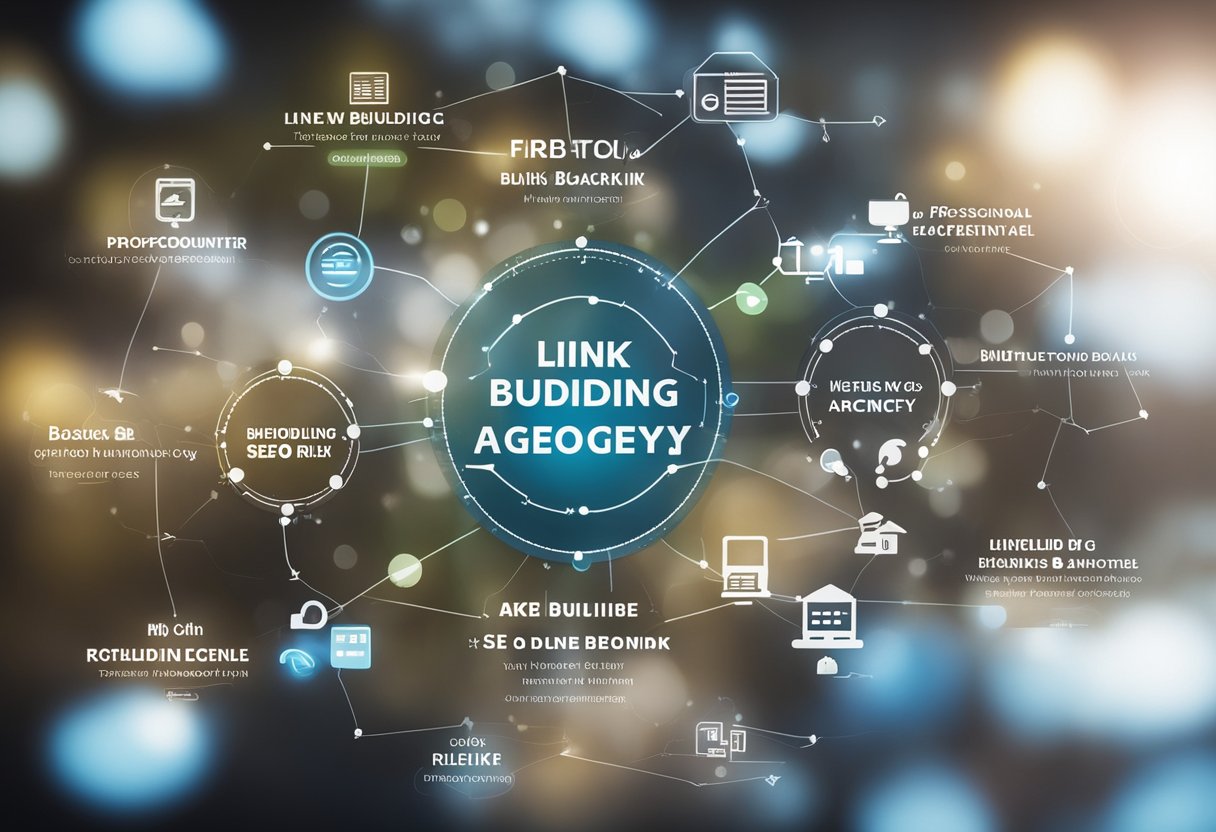
In our approach to SEO, we emphasize the significance of both the quantity and quality of backlinks in a website's profile. It's critical to understand the balance between these factors and the strategies utilized to acquire valuable links.
GROW MY BUSINESS NOW
Quality Vs. Quantity
When analyzing backlinks in our campaigns, we prioritize quality backlinks over sheer numbers. A solid backlink profile consists of links from reputable sites that are relevant to your industry. Such high-quality backlinks can substantially enhance your website's credibility with search engines, which is more beneficial than having a large volume of low-quality links.
- Quality: We focus on links that provide value, coming from high authority domains, ensuring relevance and trustworthiness.
- Quantity: While the number of backlinks is important, we never sacrifice quality to increase numbers indiscriminately.
Outreach and Acquisition
Our tactics for acquiring backlinks center on personalized outreach and strategic acquisition. We build relationships with industry influencers and site owners to secure opportunities for guest blogging and valuable content placements.
- Manual Outreach: Our approach involves personal communication with website owners, tailoring our message to align with their audience and content needs.
- Guest Blogging: By creating well-written, informative content for other websites, we establish our authority and gain quality backlinks.
Through these focused efforts, we build a well-rounded backlink profile that supports your site's authenticity and raises its profile in search engine results.
SEO Reporting and Analytics
To effectively manage and improve our SEO campaigns, it's essential to have a robust system for SEO reporting and analytics. This enables us to track our progress, understand the impact of our strategies, and make informed decisions.
Tracking Campaign Success
We prioritize key performance indicators (KPIs) that accurately reflect the success of our SEO campaigns. By scrutinizing organic traffic, keyword rankings, and conversion rates, we obtain a clear picture of our current standing. Utilizing tools like AgencyAnalytics, we produce custom dashboards that monitor these vital metrics, thus ensuring our track record remains transparent and positive.
Our goal is to not just generate reports but to interpret data to understand how we can rank better. Regular monitoring allows us to identify trends and pivot strategies swiftly, keeping our campaigns aligned with set goals.
Making Data-Driven Decisions
The implementation of SEO strategies is not a set-it-and-forget-it affair; it requires ongoing adjustments based on data analysis. We leverage insights gathered from resources like Moz SEO Analytics to refine our tactics. This way, every action we take is backed by concrete data—be it in link building, content optimization, or technical SEO adjustments.
Data-driven decision making is the cornerstone of our approach, keeping us ahead in the rapidly evolving landscape of SEO. It ensures that our strategies are effective, efficient, and aligned with the overarching objectives of our SEO campaigns.
SEO in Different Industries

As we explore the multifaceted world of SEO, we must recognize that its impact varies widely across industries. Tailored strategies are essential, as the requisites for visibility and ranking can differ significantly from one market segment to another.
B2B and Ecommerce SEO
In the realm of B2B (Business to Business) and Ecommerce, SEO plays a pivotal role in driving targeted traffic and converting leads into sales. Our approach must be data-driven, focusing on keyword research that resonates with our industry-specific audience.
For Ecommerce, it's critical to enhance product pages for both search visibility and user experience, optimizing elements such as title tags, detailed product descriptions, and high-quality images.
- Keyword Optimization: Identify industry-specific keywords that decision-makers use when searching for your B2B services or ecommerce products.
- On-Page SEO: Optimize product titles, descriptions, and images to improve SEO ranking and attract more qualified traffic.
Our strategies also encompass the utilization of comprehensive analytics to inform ongoing SEO efforts, ensuring that we remain at the forefront of SEO Malaysia market trends and consumer behavior patterns.
Healthcare and Local SEO
For healthcare providers, local SEO is indispensable in attracting patients within a specific geographic area. We prioritize accurate and complete Google My Business listings, local citations, and a strong emphasis on patient reviews to establish credibility and trust.
- Google My Business: Ensure our healthcare client's location and contact information are up-to-date for improved local search visibility.
- Patient Reviews: Encourage and manage online reviews to build trust and positively impact our local SEO ranking.
Our healthcare SEO services extend beyond local listings to include informational content that addresses common health concerns, supporting both our SEO ranking efforts and the provision of valuable insights to our audience.
Choosing the Right SEO Partner
When it comes to selecting an SEO partner, we must scrutinize their offerings and align our budget and expectations with the agency's potential return on investment. This careful balance ensures we make a choice that can elevate our online presence and contribute to our business growth.
SEO Agency Evaluation
When evaluating SEO agencies, it's crucial to consider their client retention rate, which often reflects their reliability and the quality of their services. A high retention rate signifies satisfied clients and sustained performance. We should also assess whether an SEO agency assigns a dedicated account manager, ensuring personalized service and a direct communication line for managing our campaign.
An agency's SEO package should be comprehensive, including keyword research, on-page optimization, and regular performance reports. The package should align with our specific goals, such as driving traffic or improving search rankings.
- Client Retention Rate: Look for >70% as an indicator of consistency and client satisfaction.
- Account Manager: Ensure we have a dedicated professional for personalized strategy management.
GROW MY BUSINESS NOW
Establishing a Budget and Expectations
Determining our budget for SEO services is non-negotiable. It's important to understand that SEO pricing varies widely and generally reflects the scope and quality of the services provided. We should consider our budget as an investment; balance it against the potential ROI.
We won't skimp on quality for cost, but we need to make sure the investment scales sensibly with our business size and revenue projections.
- SEO Pricing: Expect a range from moderate to high for quality services, generally tied to the comprehensiveness of the SEO package.
- ROI: Estimate potential returns based on case studies and the agency's historical performance data.
By addressing these key points, we position ourselves to find an SEO partner that not only meets our expectations but also cooperates with our financial planning.
You Might Be Interested In These Too!
 Autoblogging AI Review: Unveiling Performance, Pricing & MoreFebruary 10, 2024
Autoblogging AI Review: Unveiling Performance, Pricing & MoreFebruary 10, 2024 SEO for Retail Businesses: Enhance Your Website For Malaysia's LocalSeptember 2, 2024
SEO for Retail Businesses: Enhance Your Website For Malaysia's LocalSeptember 2, 2024 JB Website Specialists: Tailored Solutions for Your Online SuccessAugust 2, 2024
JB Website Specialists: Tailored Solutions for Your Online SuccessAugust 2, 2024 Rank on #1 Page Google Fast: 5 Proven SEO StrategiesFebruary 2, 2024
Rank on #1 Page Google Fast: 5 Proven SEO StrategiesFebruary 2, 2024
